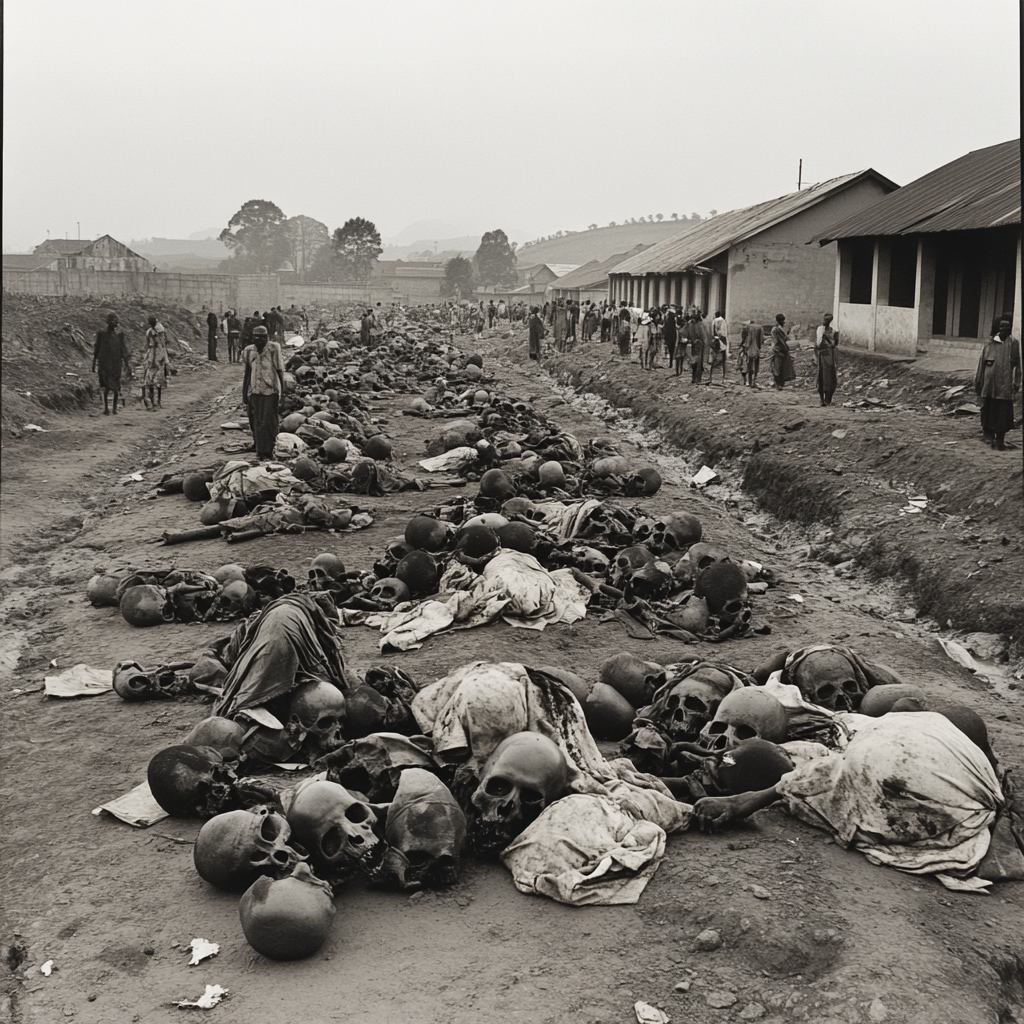On April 7, 1994, the world witnessed the onset of one of the fastest genocides in human history. Over the course of 100 days, an estimated 800,000 lives were lost, with 70% to 80% of Rwanda's Tutsi population tragically exterminated. To understand the profound impact of this atrocity, it is essential to explore the historical context that set the stage for such a devastating event.
Rwanda, a country nestled in central Africa, has long been home to three main ethnic groups: the Hutu, Tutsi, and Twa. For centuries, these communities coexisted peacefully. The arrival of the Tutsi population in the 16th century marked the establishment of a small, cohesive kingdom. At this time, the terms "Hutu" and "Tutsi" were fluid, referring more to social or economic status than rigid ethnic distinctions. People moved between these identities based on factors such as wealth and occupation.
This harmony would be profoundly disrupted with the advent of European colonization in the late 19th century
Between 1884 and 1919, Rwanda fell under the control of German, and later Belgian, colonial powers. The European colonizers imposed a racialized hierarchy that categorized the population along ethnic lines. The Tutsi, viewed by the colonizers as more "civilized" or "superior," were favored and elevated to positions of authority. Conversely, the Hutu majority was relegated to a lower social status.
The Belgian authorities further entrenched these divisions by introducing identity cards in the 1930s, which explicitly classified individuals as Hutu, Tutsi, or Twa. This rigid categorization system crystallized distinctions that had once been fluid, laying the groundwork for resentment and systemic inequality. The parallels to identification methods used during the Nazi era in Germany are chilling, underscoring the far-reaching and insidious nature of such divisive policies.
Rwanda achieved independence in 1962, but the legacies of colonialism continued to shape the nation's socio-political landscape. Ethnic tensions simmered as decades of marginalization and discrimination sowed deep divisions between the groups.
Between 1959 and 1994, sporadic violence erupted across Rwanda, targeting the Tutsi population. Over 100,000 Tutsi lives were lost in this period, and countless others were displaced. Tensions mounted, paving the way for the catastrophic events of 1994


On April 6, 1994, a plane carrying Rwanda's President Juvénal Habyarimana and Burundian President Cyprien Ntaryamira was shot down over the capital, Kigali. Both leaders perished in the crash, and the event became the catalyst for a meticulously planned genocide.
Within hours, extremist Hutu leaders mobilized militias and armed civilians to carry out mass killings. Moderate Hutu individuals who opposed the violence were also targeted. Over 100 days, systematic extermination claimed the lives of approximately 800,000 people. Entire communities were destroyed, leaving an indelible scar on the nation.
In the aftermath of this tragedy, Rwanda embarked on an extraordinary journey of recovery and reconciliation. Despite the immeasurable loss, the country has demonstrated resilience and determination to rebuild.
Rwanda has experienced steady economic growth, bolstered by strategic investments in tourism, technology, and agriculture. The government has prioritized education and healthcare, leading to improved living standards and opportunities for its citizens. The adoption of policies promoting unity and reconciliation has also played a crucial role in healing the deep wounds of the past.
The Rwandan genocide stands as a stark reminder of the destructive legacies of colonialism and the consequences of systemic oppression. It underscores the importance of fostering inclusive societies where justice, equality, and human rights are upheld.
Reflecting on these events through a decolonial lens allows us to critically examine the root causes of such atrocities. By understanding the historical forces that shaped the present, we can work to dismantle systems of division and ensure a future built on mutual respect and understanding.
As we commemorate the victims of the Rwandan genocide, it is our collective responsibility to educate ourselves and others about this dark chapter in history. In doing so, we honor the memory of those who were lost and reaffirm our commitment to creating a world where such tragedies are never repeated.
The story of Rwanda is one of pain, but also one of hope. It serves as a powerful testament to the resilience of the human spirit and the transformative potential of unity and compassion.
Desta - Decolonial city tour
+49 152 2108 6724
info@dekolonialestadtfuehrung.de or info@decolonialtours.com
Are you a journalist and interested in writing about us? Please feel free to contact us.
Imprint | General Terms and conditions | Privacy policy | © Copyright 2025 deSta- Decolonial city tour